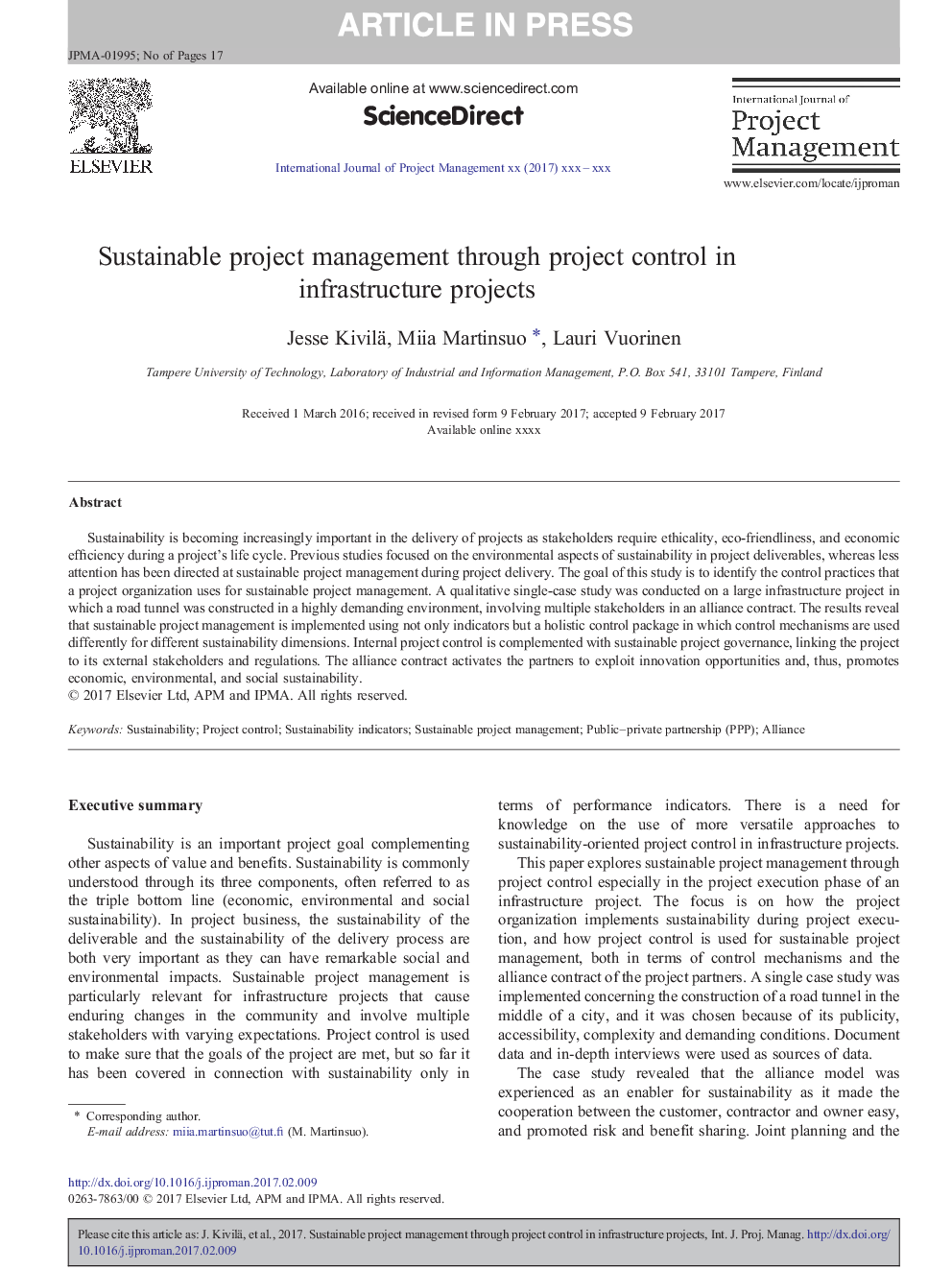| Article ID | Journal | Published Year | Pages | File Type |
|---|---|---|---|---|
| 4922150 | International Journal of Project Management | 2017 | 17 Pages |
Abstract
Sustainability is becoming increasingly important in the delivery of projects as stakeholders require ethicality, eco-friendliness, and economic efficiency during a project's life cycle. Previous studies focused on the environmental aspects of sustainability in project deliverables, whereas less attention has been directed at sustainable project management during project delivery. The goal of this study is to identify the control practices that a project organization uses for sustainable project management. A qualitative single-case study was conducted on a large infrastructure project in which a road tunnel was constructed in a highly demanding environment, involving multiple stakeholders in an alliance contract. The results reveal that sustainable project management is implemented using not only indicators but a holistic control package in which control mechanisms are used differently for different sustainability dimensions. Internal project control is complemented with sustainable project governance, linking the project to its external stakeholders and regulations. The alliance contract activates the partners to exploit innovation opportunities and, thus, promotes economic, environmental, and social sustainability.
Keywords
Related Topics
Physical Sciences and Engineering
Engineering
Civil and Structural Engineering
Authors
Jesse Kivilä, Miia Martinsuo, Lauri Vuorinen,
